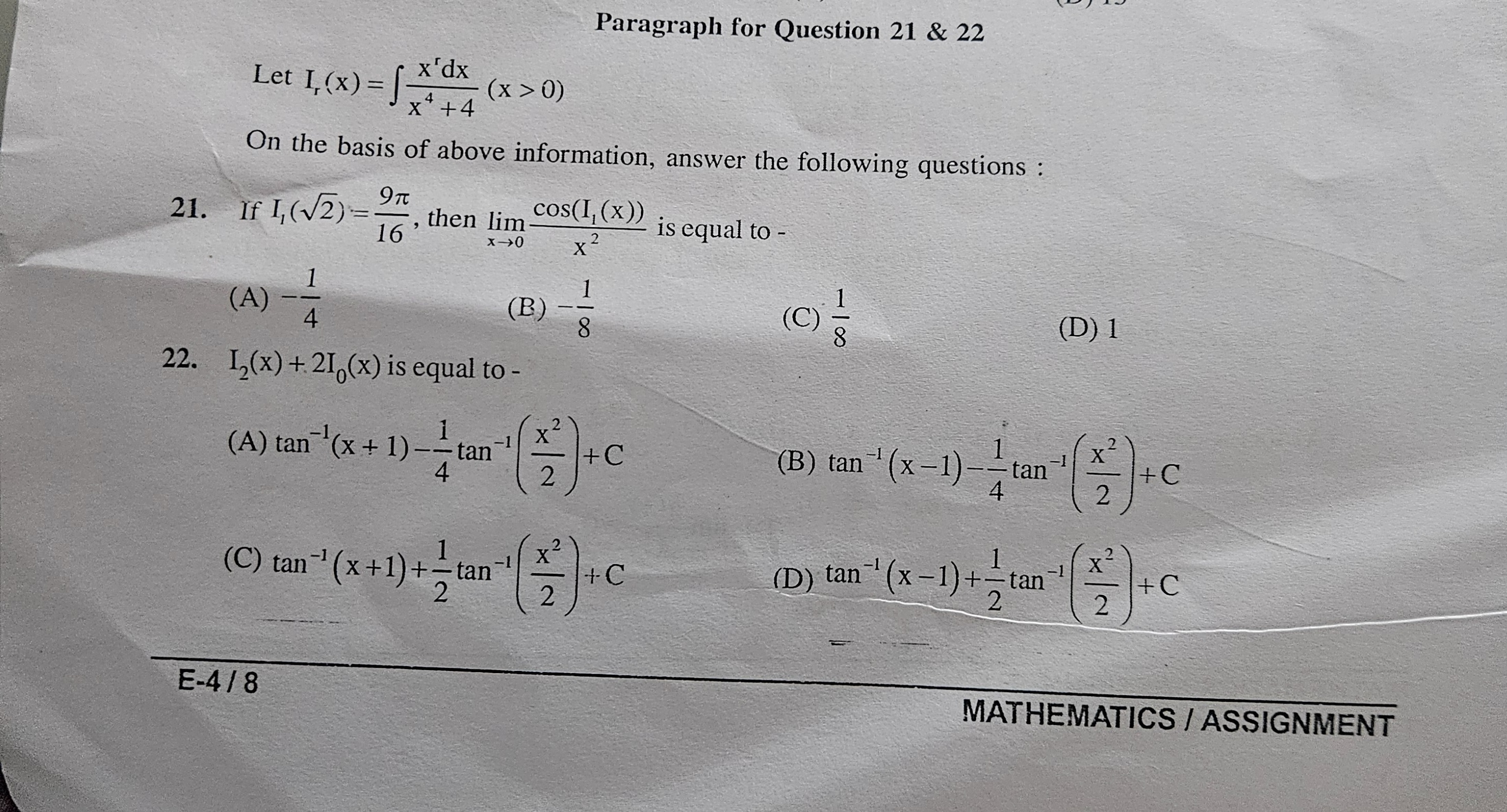Question
Question: Let $I_r(x) = \int \frac{x^r dx}{x^4 + 4} (x > 0)$ If $I_1(\sqrt{2}) = \frac{9\pi}{16}$, then $\lim...
Let Ir(x)=∫x4+4xrdx(x>0)
If I1(2)=169π, then limx→0x2cos(I1(x)) is equal to -

-41
-81
81
1
-81
Solution
-
Find I1(x): I1(x)=∫x4+4xdx Let u=x2, then du=2xdx, so xdx=21du. I1(x)=∫u2+421du=21∫u2+22du Using the standard integral ∫x2+a2dx=a1tan−1(ax)+C: I1(x)=21⋅21tan−1(2u)+C=41tan−1(2x2)+C.
-
Determine the constant C using I1(2)=169π: Substitute x=2 into I1(x): I1(2)=41tan−1(2(2)2)+C=41tan−1(22)+C=41tan−1(1)+C I1(2)=41⋅4π+C=16π+C. Given I1(2)=169π, we have: 16π+C=169π⟹C=168π=2π. So, I1(x)=41tan−1(2x2)+2π.
-
Evaluate the limit limx→0x2cos(I1(x)): First, find I1(0): I1(0)=41tan−1(202)+2π=41tan−1(0)+2π=0+2π=2π. As x→0, I1(x)→2π. The limit is of the form 0cos(π/2)=00, so we can apply L'Hopital's Rule. Let L=limx→0x2cos(I1(x)). Differentiate numerator and denominator with respect to x: L=limx→02x−sin(I1(x))⋅I1′(x). From the definition Ir(x)=∫x4+4xrdx, by the Fundamental Theorem of Calculus, I1′(x)=x4+4x. Substitute I1′(x): L=limx→02x−sin(I1(x))⋅x4+4x L=limx→02(x4+4)−sin(I1(x)). Now, substitute x=0: L=2(04+4)−sin(I1(0))=2(4)−sin(π/2)=8−1.
The final answer is -81.
